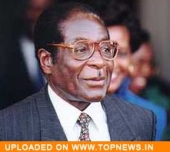Zimbabwe declares foreign currencies legal
 Johannesburg/Harare - 's government Thursday declared all foreign currencies to be legal tender, alongside the near-worthless Zimbabwe currency, legalising the domination of hard currency in the country's collapsed economy.
Johannesburg/Harare - 's government Thursday declared all foreign currencies to be legal tender, alongside the near-worthless Zimbabwe currency, legalising the domination of hard currency in the country's collapsed economy.
The regime also introduced a wide range of economic reforms in an attempt to revitalise the crisis-stricken economy, where economists can only guess at the rate of hyperinflation, where the productive sector has foundered and the infrastructure is crumbling.
Acting-finance minister Patrick Chinamasa said as he delivered the national budget - delayed by two months while the country's two main political rivals argued over the implementation of a transitional power-sharing agreement - that "it requires a paradigm shift in terms of acknowledging the reality that we cannot eat what we do not have."
With the US dollar worth about 20 trillion Zimbabwe dollars, and prices changing often several times in a day, Zimbabwean businesses have increasingly resorted to charging in US dollars, South African Rand, Euros and Botswana Pula.
The government late last year licensed hard currency shops but individuals were still being arrested and prosecuted for dealing and possessing foreign currency.
"Government is allowing the use of multiple foreign currencies for business transactions, alongside the Zimbabwe dollar," Chinamasa said to roars of approval in the house of assembly.
The stock exchange would be allowed to deal in any currencies, and insurance companies, local authorities, state-owned utilities and high schools would be allowed to charge in both Zimbabwe and hard currencies, he said. A range of taxes would also be charged in foreign currency.
In an attempt to still growing industrial unrest in the civil service, Chinamasa said government employees would continue to be paid in Zimbabwe dollars, but would also receive a monthly allowance in US dollar terms - but paid in vouchers.
He said the vouchers were "an interim arrangement" and would be phased out gradually and replaced with foreign cash "in line with the improvement in foreign currency inflows."
The budget's estimates of state expenditure were given in Zimbabwe dollars, US dollars and South African Rand. When he detailed government expenditure for last year, MPs laughed as he gave figures in thousands of quintillions of Zimbabwe dollars.
He also announced that price controls - regarded as one of the main reasons for the rapid acceleration in the collapse of the economy last year - were scrapped with immediate effect, because of their "unintended consequences" of putting companies out of business, creating massive shortages and boosting hyperinflation.
Chinamasa also announced the end of a monopoly on the country's grain trade by a state-owned company - which is seen as one of the main causes of decades of low grain production - and said with immediate effect milling companies could trade openly with farmers.
The controversial role of the central bank, with a declared policy of printing vast quantities of money and continually bailing out the government as it overspent, would "concentrate on its mandated policy by ensuring the stability of the financial sector." dpa